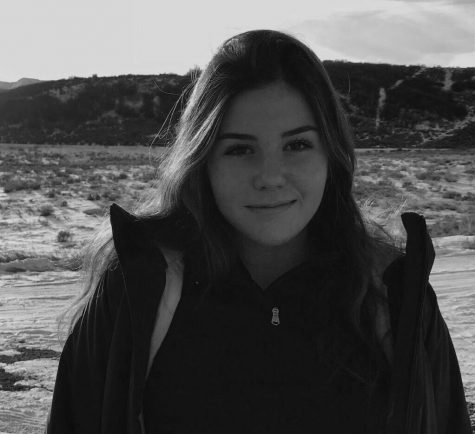Hebrew course perseveres despite challenges it faces
November 22, 2016
Although the Hebrew program has lost two teachers in the past two years, 35 students remain in the course with a part-time teacher from Niles North.
“There have been three different Hebrew teachers in the past three years,” Rachel Gressel, World Language and Bilingual Dept. Chair said. “The problem is that every teacher has to learn every curriculum for all three levels.”
Two years ago, former Hebrew teacher Semadar Siegel retired after teaching for 17 years. Siegel was a proud educator and helped build the Israel club and entire Hebrew program. Last year, Michelle Sherman took her place and taught all Hebrew levels for the year. She resigned in April, but sources could not disclose why.
During the summer, Scott Bramley, Associate Principal for Instruction and Literacy, sent out letters to inform and update parents on the current teacher situation. According to Bramley, ETHS started the search for a qualified teacher starting July 7. Gressel, along with five department chairpersons and teachers in the World Language Dept., worked all summer to find a qualified Hebrew teacher.
“We’ve encouraged incoming students to pick an alternative elective or language,” Gressel said. “I would hate to be anything but transparent.”
A follow-up letter was sent on Aug. 8, saying that ETHS had not been able to secure a qualified teacher and would no longer be offering Hebrew 1. A total of 10 students were not able to take the course this school year.
“You need to have an Illinois license and certification in order to legally work for a public school,” Gressel explained. “The majority of schools that offer Hebrew are private and don’t require that, so the main candidates did not have proper certification.”
After recruiting not only locally but nationally as well and working with partner organizations such as the Israeli Center, the school realized there were limited qualified teacher options. Fortunately, Gressel reached out to Niles and got in contact with Anna Raiber.
Raiber currently teaches part-time at ETHS, periods eight and nine. This means that each period has four different levels blocked together. Period eight combines Hebrew 2, 2H, 3, and 3H, and period nine combines 4, 4H, 5, and advanced hebrew language and culture. This would have been the case anyway, due to the low number of students in the program.
“Scheduling is difficult because she is not available during mornings,” junior Magda Pukal said. “The good thing is that if I ever do need help, I can just get it from my peers.”
Because of the difference between the Niles and Evanston schedules, for eighth period on Mondays or any day with special schedules, Raiber is unable to make it to class, but students are still able to get a full class of Hebrew. Raiber leaves lesson plans for Gressel, who is able to substitute at that time.
Although she faces these struggles, students say Raiber has done a good job at pacing the class.
“She takes the class seriously, and I’ve definitely improved,” sophomore Ilan Elenbogen Siegel said. “This year we have actual packets and textbooks, while last year we only did worksheets.”
Gressel says this program not only teaches students how to learn Hebrew, but also offers great opportunities and skills to continue on to careers such as history and government. The class also enriches students in the culture and tradition of Israel.
Additionally, there is often the misconception that the course is meant to be only a Jewish class, but according to Raiber, it is a class that can be useful and important to everybody.
“It’s way more than just learning the language; you learn about the culture of Israel,” Pukal said. “I’ve learned a lot of skills on how we can use the language in real life.”
As for following years, Raiber is going to make sure that there is a future to the Hebrew program. She wants to create more community and support for the course, as well as to have more cultural days and events. Raiber is working towards planning Israeli movie nights so that the Evanston community can learn and become more interested in the culture.
“You can’t sustain a language class if there are no new students coming in,” sophomore Sarah Bloom said. “Lots of schools don’t offer Hebrew, so it’s special that ETHS does.”








